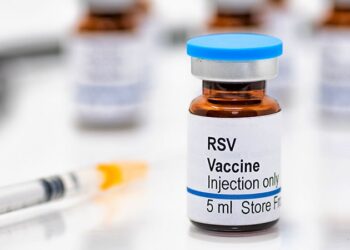A medical emergency above the clouds, and you are the only doctor on board among the passengers — a situation doctors fear. What should you be prepared for? How can you avoid making wrong decisions?
These questions were the focus of a session titled “Aviation Medicine for Internists” at the 131st Congress of the German Society of Internal Medicine in Wiesbaden, Germany.
Sven-Karsten Peters, MD, a cardiologist at Lufthansa Medical Service, offered practical answers to commonly asked questions. The following are five key tips to keep in mind before your next flight:
1. Legal Obligations
On airplanes, the “flag law” applies, meaning the legal system of the country where the airplane is registered governs the situation. For instance, German law applies to Lufthansa flights, whereas American law applies to United Airlines flights. The obligation of doctors to assist in medical emergencies varies across countries.
In many European and Asian countries, there is a legal obligation to provide assistance. In contrast, in the United States, doctors are not legally required to help in medical emergencies. However, the Good Samaritan law protects first responders from legal consequences as long as they offer help voluntarily, without charge, and without gross negligence.
Peters emphasised in his presentation that, to his knowledge, there has never been an international case in which a medical intervention onboard an airplane led to criminal or civil consequences for a doctor. Furthermore, first aid is covered by the aircraft’s liability insurance. Exceptions include gross negligence and wilful misconduct.
2. Onboard Equipment
According to a publication in The New England Journal of Medicine, syncope and presyncope account for 37% of medical incidents on passenger flights. Respiratory issues ranked second, representing 12%. Other common in-flight emergencies include nausea, vomiting, cardiac symptoms, and seizures.
Onboard medical equipment is regulated by law, with standards. In Europe, the European Union Aviation Safety Agency sets these standards. Besides the required minimum — which includes an emergency medical kit — some airlines provide additional medical equipment that varies depending on the airline.
3. Emergency Protocols
After you identify yourself as a doctor to the flight crew, introduce yourself to the patient and cabin crew, clearly stating your medical qualifications and expertise.
Then, ask the patient explicitly for permission to provide treatment, involving a translator if needed. Take their medical history, perform a basic examination, and record their vital signs.
Ask the cabin crew about available diagnostic tools. For example, airlines, namely Lufthansa, have a 12-lead ECG on board. Confirm emergency procedures with the crew and ensure the incident is documented.
4. Telemedical Support
If you are the only doctor on board and a patient has a seizure but you are unsure how to treat status epilepticus, telemedical consultation can help. Airplanes can connect to ground-based medical centres via telecommunications, where trained emergency doctors are available around the clock to provide advice and support.
5. Unscheduled Landing
As a doctor, one must work closely with the flight crew. Cabin crew members receive basic medical training and are usually eager to assist doctors.
Deciding whether an unscheduled landing is necessary or possible can be challenging. As a doctor, you should discuss this with both ground-based medical support and cockpit crew members. However, the final decision rests with the captain.
According to a study published in 2013, approximately 7% of medical emergencies result in aircraft diversion. The decision depends on factors such as the patient’s condition, flight route, and availability of medical facilities on the ground.
This story was translated from Medscape’s German edition using several editorial tools, including AI, as part of the process. Human editors reviewed this content before publication.
Source link : https://www.medscape.com/viewarticle/doctor-board-handle-emergencies-these-five-tips-2025a1000csi?src=rss
Author :
Publish date : 2025-05-21 10:01:00
Copyright for syndicated content belongs to the linked Source.














